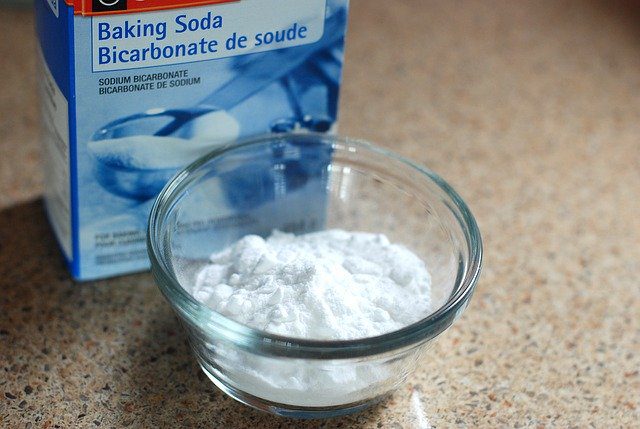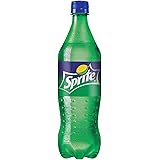INS 503 is a food additive that has been used for ages for its amazing leavening properties. It is a white crystalline powder and looks like salt. The primary use of ammonium carbonate is acting as a raising agent for bakery products. It increases gas volume as well as improvises the quality of the dough.
Another alternative to INS 503 is baking powder. INS 503 is the most common raising agent used by the majority of bakers these days. There are two reasons to choose baking powder over ammonium carbonate. First, it is safer to use, and second, it can offer better results.
Raising agent 503 has a slight ammonia-like odor that is prominent during the baking process.
Table of Contents
Necessary Know-how about INS 503
Ammonium Bicarbonate 503 helps to make baked goods like breads, cakes, pastries, and cookies. Many buns and bread preparations are made with the help of this raising agent. This raising agent must get used in minimal quantity. Sometimes adding a pinch can give the perfect texture to all the breads.
It is important to store INS 503 in a cool and dry place. It has a stable chemical compound, and you must keep it away from strong bases and acids.

Sprite Soft Drink PET Bottle, 750 ml
(as of April 6, 2025 19:11 GMT +05:30 - More infoProduct prices and availability are accurate as of the date/time indicated and are subject to change. Any price and availability information displayed on [relevant Amazon Site(s), as applicable] at the time of purchase will apply to the purchase of this product.)Origin of INS 503
505ii ammonium hydrogen carbonate or e503ii is a genetically modified food additive. Its origin started from reindeer’s ground antlers. INS 503 is a combination of many chemical compounds including ammonia, water, and carbon dioxide. There are many names for this raising agent, for example, INS 503, e503, ins 503, raising agent 503 ii, e503ii, raising agent 503, 503ii and ins 503 ii.
Related Reading:
Uses of Raising Agent (INS 503)
INS 503, a rising agent, is not only used in the food industry. This rising agent is further used in manufacturing, agricultural and pharmaceutical industries too.
INS 503 is an acidity regulator as well. It restricts the alkalinity in food. It produces gas and volume to the mixture that results in perfect bread dough.
1. Used in Baking
This leavening agent comprises a chemical compound that is helpful in the preparation of various baked goods. All bakery products contain some raising agent that helps to raise a mixture and give it the perfect texture. Interestingly, it does not affect the taste of food when used in the baking process. If at all you are sensitive to this compound, baking powder is a suitable alternative.
If you also wish to try your hand in baking, raising agents can be very helpful. Using INS 503 is a great way to try making soft bread and tasty fluffy cakes. Adding the right proportion to its batter helps in getting a perfect consistency. Baking cannot ever be simpler than it is with the use of ammonium carbonate.
2. Used in manufacturing and pharmaceutical industries
e503ii is also used in many manufacturing and pharmaceutical industries. There are other areas where this chemical compound gets used like dyes, pigments, plastics, ceramics, and even fire- retardants.
Fire- extinguisher manufacturers also use this compound for production purposes.
3. Used as a fertilizer
Ammonia is also an excellent fertilizer and several agricultural processes use ammonium carbonate.

Food Products having INS 503
INS 503 is used in bakery products like cakes, breads, buns, pastries, etc as a raising agent. It is also used in traditional recipes such as puff pastry and cookies.
Personal Care Products having INS 503
INS 503 is used in personal care products such as sunscreen UV filters.
Industrial Products having INS 503
Industrial products such as dyes, pigments, plastics, ceramics and fire retardants use this chemical compound.
Advantages of Using Raising Agent (INS 503)
Here are a few advantages of using and consuming INS 503, a raising agent.
1. Restricts Alkalinity
INS 503, a raising agent, is an acidity regulator. It restricts the alkalinity in food. The water body with high levels of alkalinity has higher levels of minerals such as calcium carbonate, which decreases water acidity.
2. Controls PH levels
INS 503 maintains PH levels. It is used as a pH control agent in the food to maintain its active acidity or basicity.
3. Acts as an Antacid
It acts as an antacid and neutralizes stomach acid. This gives relief from heartburn and indigestion.
Furthermore, it can also help in soothing mouth ulcers.
4. Has antifungal properties
Soaking into baking soda for a few minutes can help you treat fungal infection as it has antifungal properties.
Related Reading:

Side Effects of using Raising Agent (INS 503)
Excessive use of this raising agent may be fatal. It can cause serious respiratory problems.
1. Can cause breathing problems
E503ii comprises ammonium bicarbonate, and inhaling it can cause specific breathing problems. It can create irritation in the nose and throat. Coughing, sneezing, and shortness of breath might also be a problem for some people.
If you are inhaling or getting exposed to ammonium carbonate for a longer time, it can lead to bronchitis.
2. Cause Allergies
Ensure that INS 503 should not come in direct contact with your skin or eyes because it can also cause allergies.
3. Leads to nerve weakness
Long term industrial exposure to this chemical compound can cause several problems. It leads to nerve weakness and lung allergies.
Frequently Asked Questions
Raising agent (INS 503) is the common food additive used in the baking industry. Here we have answered a few FAQs about it.
1. Is using INS 503 raising agent safe to consume?
It is widely used in baked items like breads, cookies, etc. Yes, it is safe to consume when used in these items.
2. Is Raising Agent 503 Vegan?
In old times, this leavening agent existed through animal origin. However, now you can get them in vegetarian as well as non-vegetarian options. It is also prepared by using calcium carbonate and ammonium sulfate. As a result, vegans, as well as vegetarians, can use it for baking several products.
While you are making a purchase, it is vital to see the red or green mark on the packet of raising agent 503. If there is a red mark, it means it is derived from animal sources, and green mark refers to it being vegetarian.
3. What is the difference between INS 503, baking soda and baking powder?
INS 503, baking powder, and baking soda have a similar chemical composition. Ammonium bicarbonate or e503ii is a chemical compound that can be used for cooking various types of bread. Baking powder is also another alternative to it with a kind of similar composition.
Baking soda refers to Sodium Bicarbonate, which has a distinct chemical composition. Although baking soda gets utilized for baking, it is less reliable as compared to the other two. If you need a mild raising agent like for cookies or cupcakes, then baking soda would be enough.
But to create a full-fledged cake or bread buns, baking powder or INS 503 is a far better option. But excessive use of baking soda can also lead to some health issues.
4. What is the shelf life of raising agent 503?
Every food additive or leavening agent has a shelf life when added to any food ingredients. Whenever you check the food label, ensure to check the name of the raising agent. Also, verify the date of manufacturing as well as expiry. It is essential to check the label every time you make a purchase.
Although it has a longer shelf life of its own, adding it to food products might decrease it. Especially with bread and other baked products, shelf life is not usually too long. But, packaged or processed food might stay for a longer duration.
Final Words
This is a guide for all who wish to bake but are unable due to a lack of knowledge about various raising agents. INS 503, e503, ins 503, raising agent 503 ii or e503ii is an ammonium carbonate compound. It acts as a food additive to preserve and prepare food items, especially baking products. These details can help you to understand the uses, side effects, and composition of INS 503.
This is a food additive that can turn out to be harmful when consumed or inhaled in large quantities. Hence, use it in the right proportion and keep a check on its effects after consumption. So the next time you eat bread or are chomping away a slice of cake, you will know what all goes into it!




